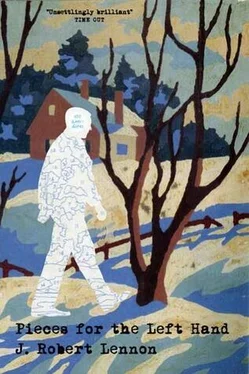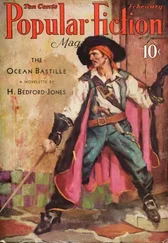The casino was a smash success, drawing tourists from hundreds of miles away, and the controversy died quietly. Then, during an election-year stump speech near the reservation, the senator out of nowhere berated the tribe for its now-moot threat, and declared that only over his dead body would any greedy Indians wave their tomahawks upon his family’s land. The statement’s overt belligerence, coupled with its reckless ethnic stereotyping, rekindled tribal interest in the land. This time, however, tribal leaders were backed by a number of liberal political groups and a considerable fortune in casino profits.
The treaty became the focus of a political campaign characterized by endless sniping and overblown rhetoric, and when the election was over, the senator had lost his seat to an anti-tax conservative with broad appeal over an ethnically diverse constituency. The tribe immediately began legal proceedings to win back their land, and within six months had recovered more than 70 percent of it, with the state paying minimal compensation to displaced landowners evicted from their homes. The senator is now roundly despised statewide, and lives anonymously with his family in another part of the country.
When asked, while walking down the state house steps mere days after the election, what had made him issue his fateful statement, the senator could not answer. In a now-famous gesture, he shielded his eyes from the sun and shook his head ruefully, then slowly let fall his hand until it covered his face, and refused to remove it until reporters left his presence.
A discount department-store chain hoped to open a retail outlet in our town, and identified a site, on the edge of the city, where it preferred to build. The site lay at a bend in a creek, opposite a popular town park prized by both naturalists and recreationalists for its broad shade trees, clean water and abundant wildlife.
The town council, eager to bring new jobs to the area and stimulate economic activity, immediately agreed to allow the chain to build, on the one condition that they choose a different site for their store. The park, the council explained, was too valuable to the community to mar its beauty with commercial development. The chain took offense at this condition and called in its legal team, who filed a series of suits, tying up the town’s attorneys and emptying its coffers with breathtaking speed. Ultimately the town gave up and issued the chain its permit, and the store was constructed quickly, using contractors from a neighboring state and laborers trucked in from the city.
For its opening day, the new store ordered several thousand butterflies to be released on the site, as a means of generating publicity and demonstrating its commitment to the natural environment. However, it was July, and the air conditioning in the van that was to deliver the butterflies broke down. The van driver, a temporary worker ignorant of the insects’ needs, thought nothing of the problem and arrived uncomfortable but on time at the new store.
The company’s CEO had taken a particular interest in this store, and now spoke in the parking lot to a crowd of reporters and eager consumers about the company’s virtues. Then, with a wave of his arm, he ordered the butterflies released.
Sadly, the butterflies had suffocated in the blistering summer heat. Undaunted, the CEO sent his employees into the store for fans, which were unboxed, plugged in, and deployed within minutes at the edge of the parking lot. These employees, mostly local teenagers, scooped handfuls of the insects from their plastic bins and flung them into the path of the fans, where they fluttered artificially for some seconds before coming to rest on the hot pavement.
The few customers who entered the store after this debacle tracked butterfly innards down its aisles, leaving long green stains on the white tiles. Those who left were forced to use their windshield wipers to clear the butterflies from their cars. The entire spectacle was captured in words and pictures by the journalists present. Nevertheless, the store has been an enormous success, as it has been in most towns, and many regard the CEO’s performance with the fans as a perfect example of the resourcefulness and creativity that have made him the retail giant he is.
Our town is famous for its deep, beautiful mountain gorges spanned by one-lane bridges, and it is from these bridges that local would-be suicides typically jump. On a recent bright October morning, a young man, a student at the university, was found dead at the bottom of a gorge by two hikers. Police discovered in the student’s dormitory room a torn scrap of paper on which were scrawled the words
can’t
go on
and the death was ruled a suicide. This news was a great shock to the student’s friends and family, who knew him as fun-loving, even hedonistic, and much was said about how you can’t truly know anyone, and how each of us, ultimately, is alone in the world.
In the days that followed, a rash of copycat suicides ensued, each with his own scrawled suicide note explaining that he too could no longer go on, and that it was only the first student’s decisive act that convinced him there was a way out. Further misery and mourning overtook the community and high fences were promptly erected atop the bridge railings.
Not long afterward, the original suicide’s roommate returned from a vacation and presented to police the rest of the paper that the suicide note had been torn from. Restored, the
note now read:
Midterms over, dude! I totally can’t
wait for this party. You can go on
without me if I’m late.—B.
Around this time police also discovered the suicide’s hat caught in the branches of a tree growing in the gorge, and a scrap of fabric caught in a bramble which matched the suicide’s ripped pants. They theorized that the student had attended a party, gotten drunk, lost his hat in a gust of wind and fallen to his death attempting to retrieve it.
Though still in mourning, the young man’s family was consoled to hear that their relative had not been so unknowable after all. However, the parents of the copycats have sued the police department and are expected to be awarded more than fifteen million dollars in damages.
A small town not far from here gained some small notoriety when a famous movie actress, fed up with the misanthropy and greed of Hollywood, moved there with her husband, children, and many dogs and horses. In an interview published in a popular national magazine, the actress said that she was sick of being recognized by tourists on the street, approached by scheming strangers at restaurants, and generally restricted in her activities by her own popularity. The nearby town, she said, offered ample privacy and a beautiful natural setting; most importantly, she added, she would not be bothered there by slimy, self-interested people more concerned with what she represented than who she was.
Hearing this, the denizens of the small town resolved to make her residence pleasant, and agreed they would welcome her in the same way they would welcome anyone who moved there; that is, the chamber of commerce sent her a package of advertising circulars, her neighbors engaged her in lively debates about the borders of her property, the police solicited her for tickets to the annual charity ball, and she was encouraged in town to apply for shopping club memberships, coffee punch cards and home improvement loans.
Respectful of her fame and her unwillingness to acknowledge it, the townspeople averted their eyes when she passed them on the street and made no mention of her films, which everyone of course had seen. When her new movie debuted, the town filled up with reporters and photographers, but all requests for comment on the actress were rebuffed, and a few dedicated townspeople even claimed to be unaware that she lived there. The local paper printed no articles about the national press presence, and ran only a short wire-service review of the new film.
Читать дальше










